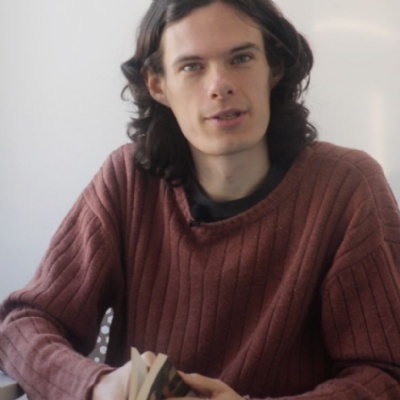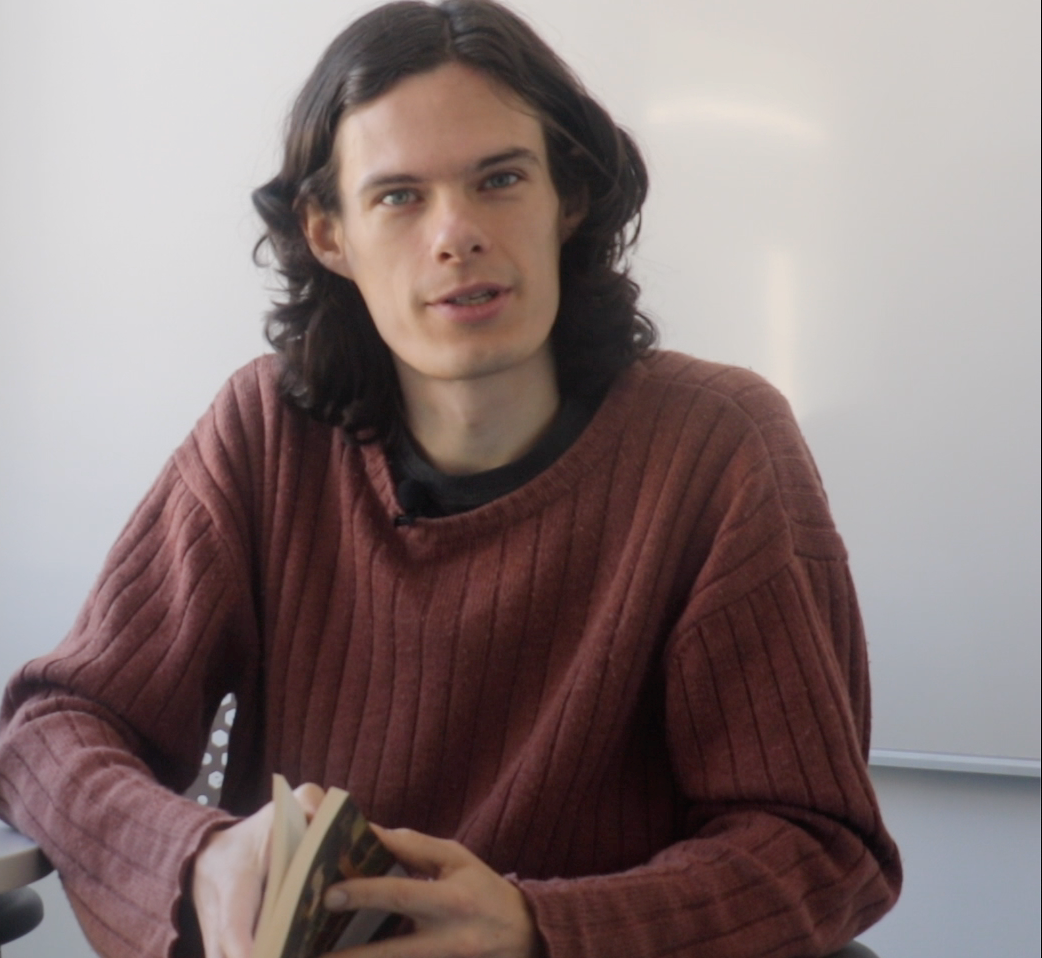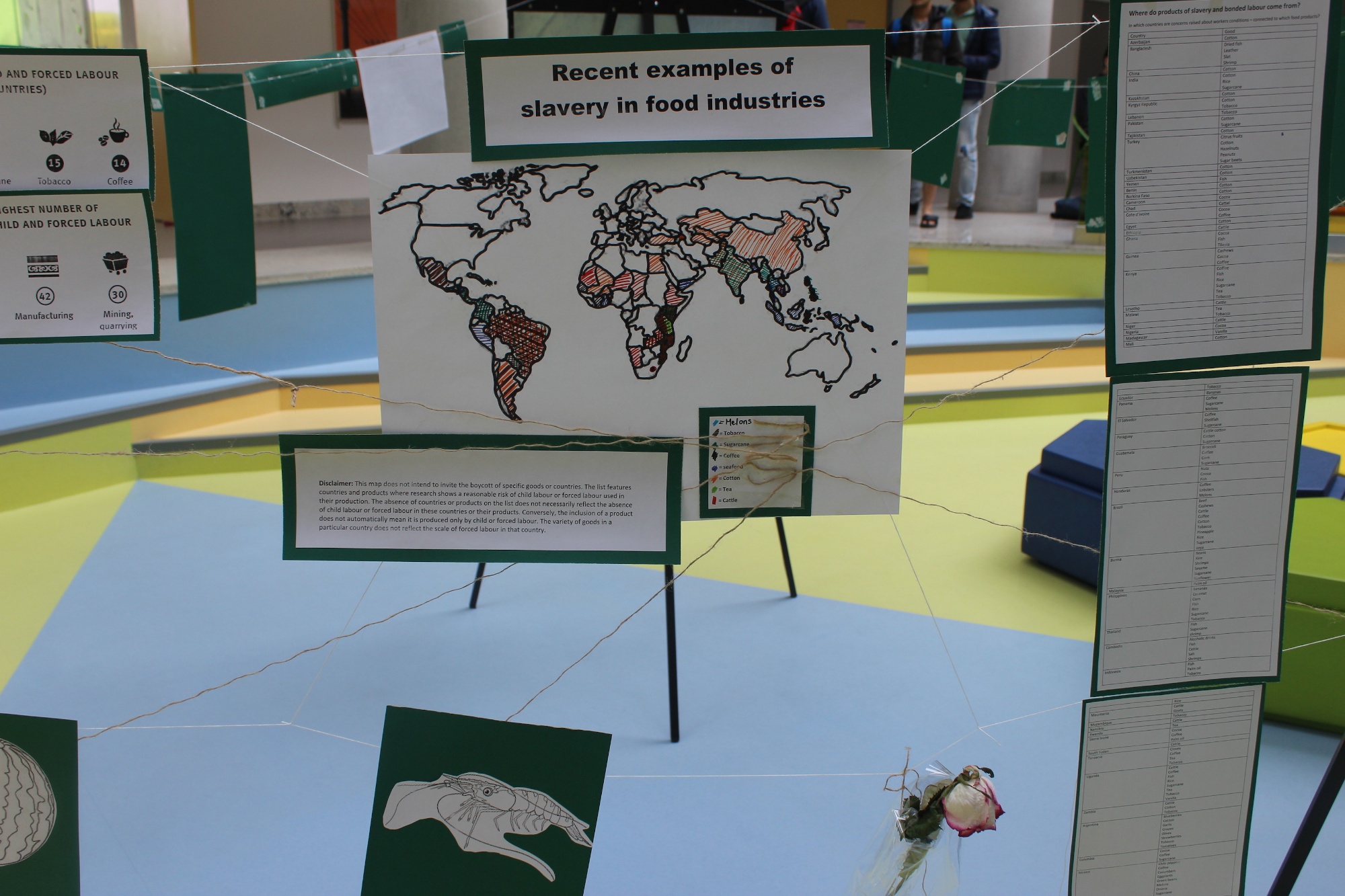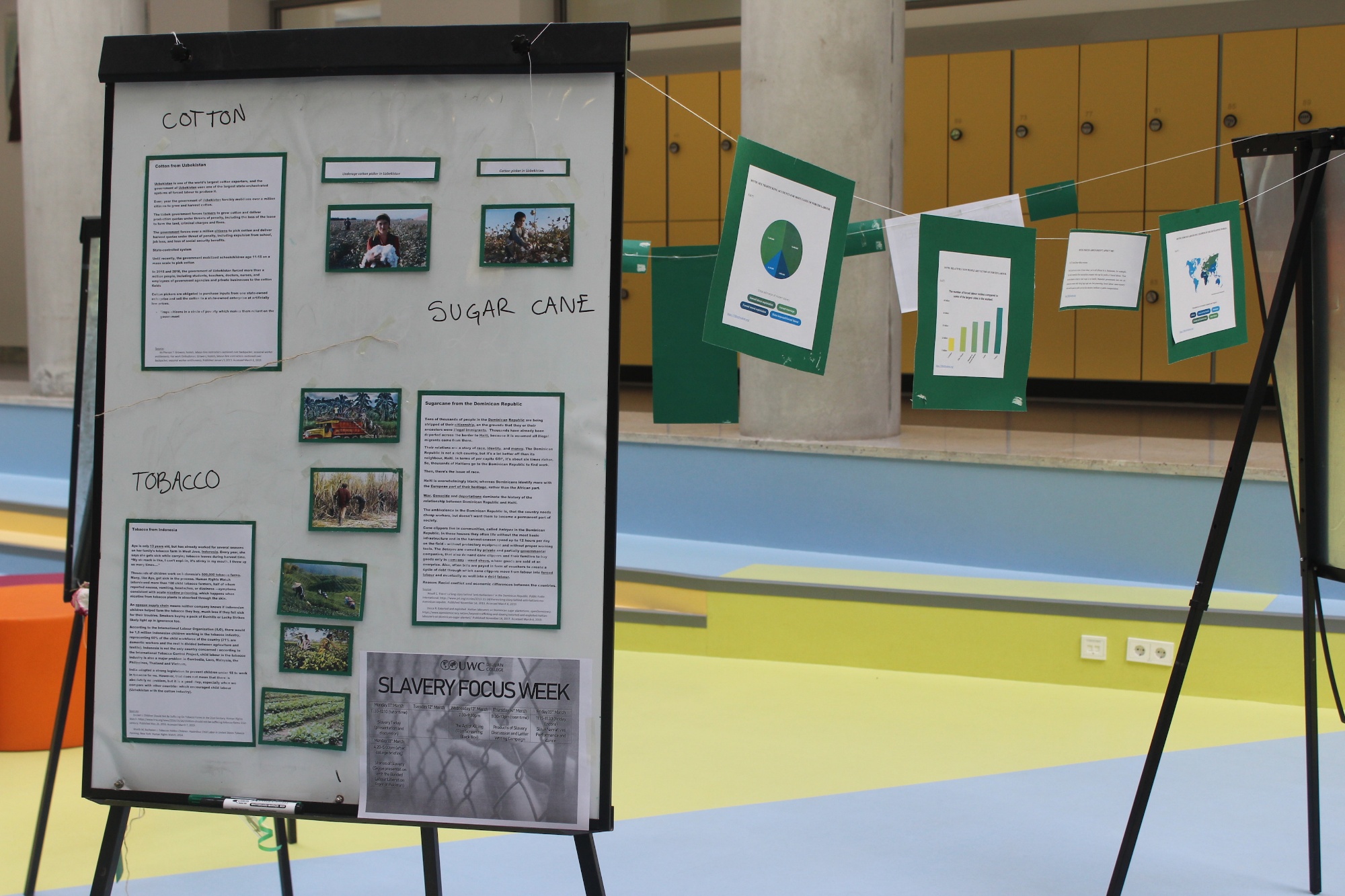Slavery Studies: Where Academics Meets Activism, Part One

Liam Goodacre (UWC Atlantic College, 2002-2004) taught at UWC Mahindra College for five years and now heads the Humanities department at UWC Dilijan, where he teaches Philosophy and TOK and has developed a multi-disciplinary course that looks at the phenomenon of slavery from as many different perspectives as possible. He wrote to UWC to share with us how he and his students approached this course:
 Over the past year at UWC Dilijan College, I have been developing and teaching a multi-disciplinary course devoted to the subject of slavery. The aim of this course is to explore slavery from as many different perspectives as possible, and to take action towards ending it.
Over the past year at UWC Dilijan College, I have been developing and teaching a multi-disciplinary course devoted to the subject of slavery. The aim of this course is to explore slavery from as many different perspectives as possible, and to take action towards ending it.
There is so much to say about slavery. It has carved an ugly but distinctive contour on every period of world history, and continues to define cultures, identities and economies across the world. One way or another, slavery has affected every nation in every time period, and its practice persists to this day in ways that few of us recognize, despite being illegal in every country. How much human suffering has slavery caused over the centuries, and how much of our wealth today can be attributed to it?
A great number of things have aligned for me in the Slavery Studies course. It has been equal parts academics and activism, and we have seen learning outcomes informing personal ethics, shaping a wider discourse around injustice and inequality within our school. It has also brought together different academic disciplines with a tremendous sense of coherence - historians, philosophers, scientists and artists say so much in agreement on the topic of slavery, while at the same time all saying something unique. But most importantly, the priority of understanding and ending slavery resonates deeply with UWC values. In studying and teaching topics about slavery, I have felt more aligned with the UWC mission statement than at any other time in the decade that I have taught here.
Exploring manifestations of slavery today.
Over the past year, I ran a pilot version of the course with a small group of dedicated students. We met once a week after school, usually with seminar-style classes or guest lectures. We started out by studying first-person narratives of slavery, for example Frederick Douglass and Harriet Ann Jacobs. We connected this with a study of African American spiritual music, one of the few modes of self-expression granted to those enslaved in the American South. (Listening to spiritual music and learning about its legacy was actually what first made me think about a course devoted to slavery. As Frederick Douglass said, “the mere hearing of those songs would do more to impress some minds with the horrible character of slavery, than the reading of whole volumes of philosophy on the subject could do.”)
Nobody but an enslaved person could ever understand the real horrors of slavery, but is there also something about slavery that only an academic can understand? History explains how and why, over the period of about three hundred years, seventeen million people were sold into slavery and transported from Africa to the Americas , and how the entire industrial revolution was underpinned by slave economies in the West Indies. What was the character and shape of racism in slave-holding societies? How did people defend slavery; how did it become so entrenched in European law, and how did it finally collapse? What are the economic arguments for ending contemporary slavery? These are the types of questions that Slavery Studies explores and there is so much potential for researching and teaching social, economic and humanitarian issues through the lens of slavery.
For example, philosophy and cinema about slavery can teach us something about the power dynamics at play in today’s society. Slavery rests on the concepts of freedom, property and personhood. But what does it mean for a human being to be owned? Is it even possible? Hegel explains slavery as a battle for the mind: in order to subdue the slave, the master must negate him through cruelty and dehumanization, until he ceases to view himself as a person. But a strange thing happens as a consequence: in seeking to dominate, the master becomes dependent on the slave, since he needs the slave to recognize him as the master. This power inversion can be seen in Steve McQueen’s recent cinema classic, 12 Years a Slave: it is not enough for plantation owners like Epps to extract the labor of their slaves; they must also be their overseer, their punisher, and their abuser, and through such acts of torture and narcissism, the master proves himself to be the inferior of the slave. So for Hegel, the ownership of a human being is a contradiction which reveals and then corrects itself on our journey towards freedom.
The Slavery Studies course is still only in its early stages, but it could grow into something really important. What I taught this year was only scratching the surface, and I am left eager for the opportunity to develop the course further. I will outline my goals further in a future blog post, but will end here by saying that Slavery Studies is a modular course which can be adapted to specific schools and contexts. Students from all backgrounds ought to be interested in it, and any teacher with sufficient enthusiasm should be able to teach and add their own to it. I believe that the relevance of this course to UWC is self-evident, and I hope that it can become a part of a UWC renaissance, as we continue to examine our methods and curriculum, and how it is that we go about making education a force for change in the 21st Century.
I will outline my goals further in a future blog post.


